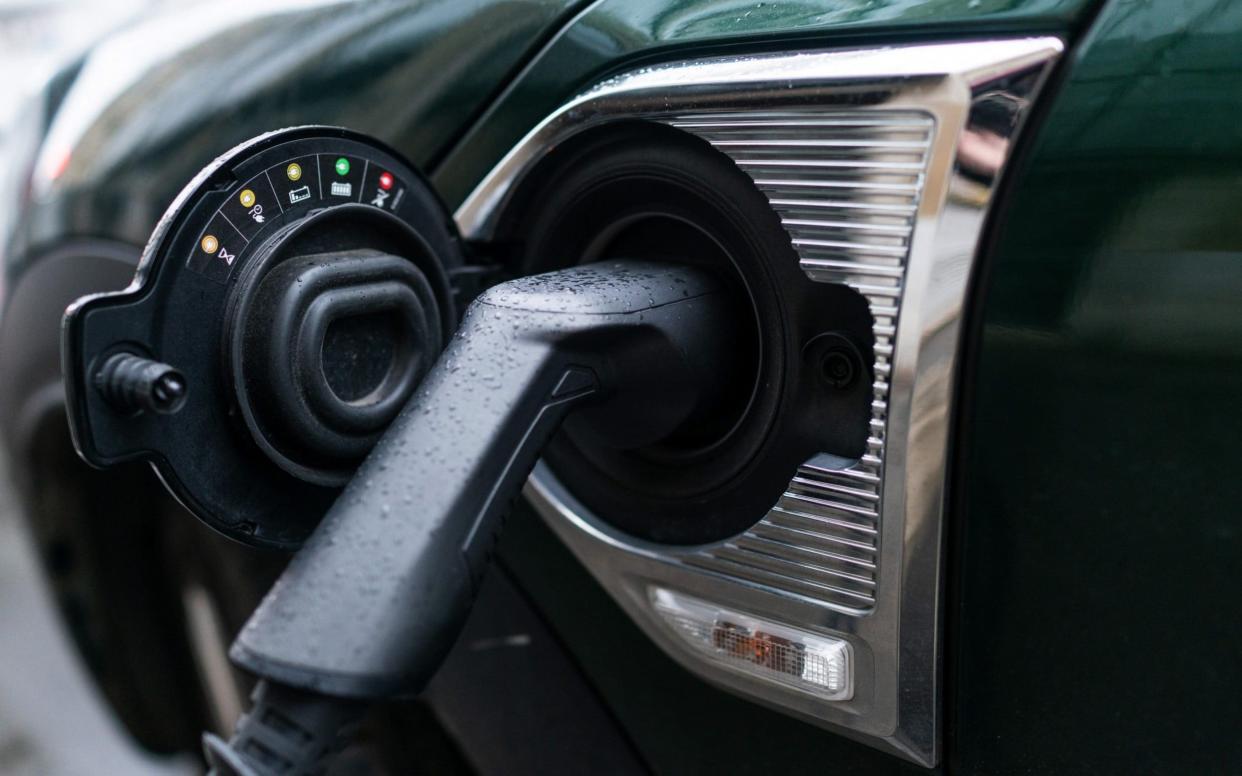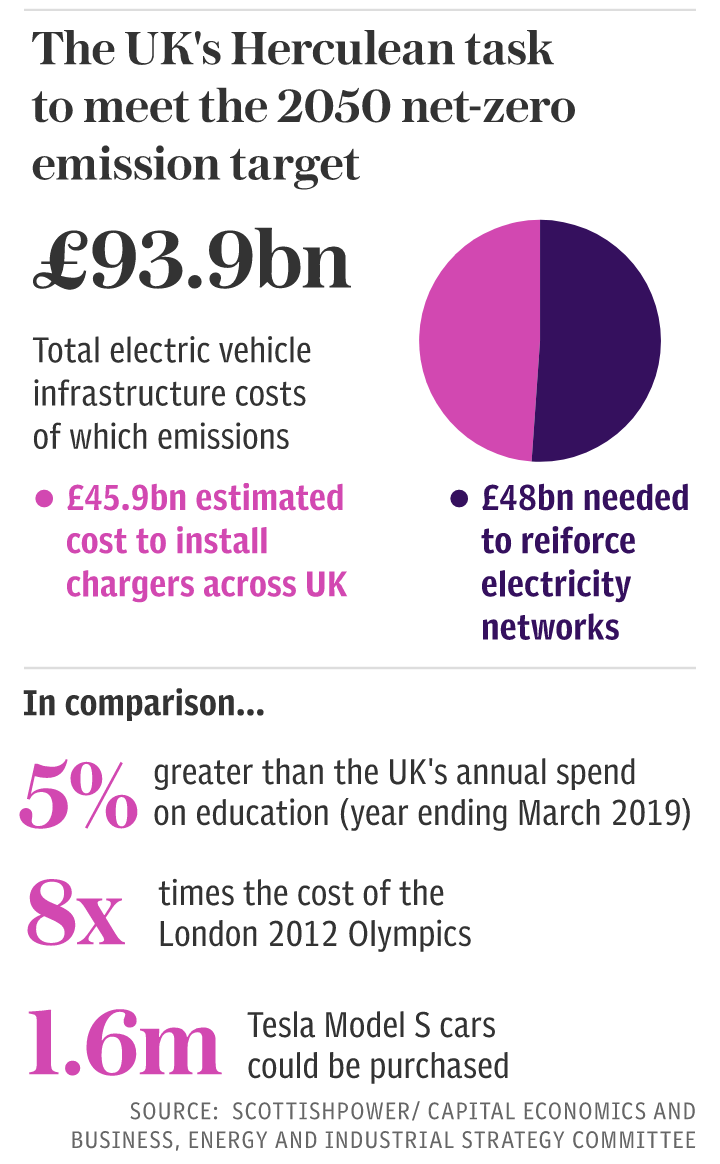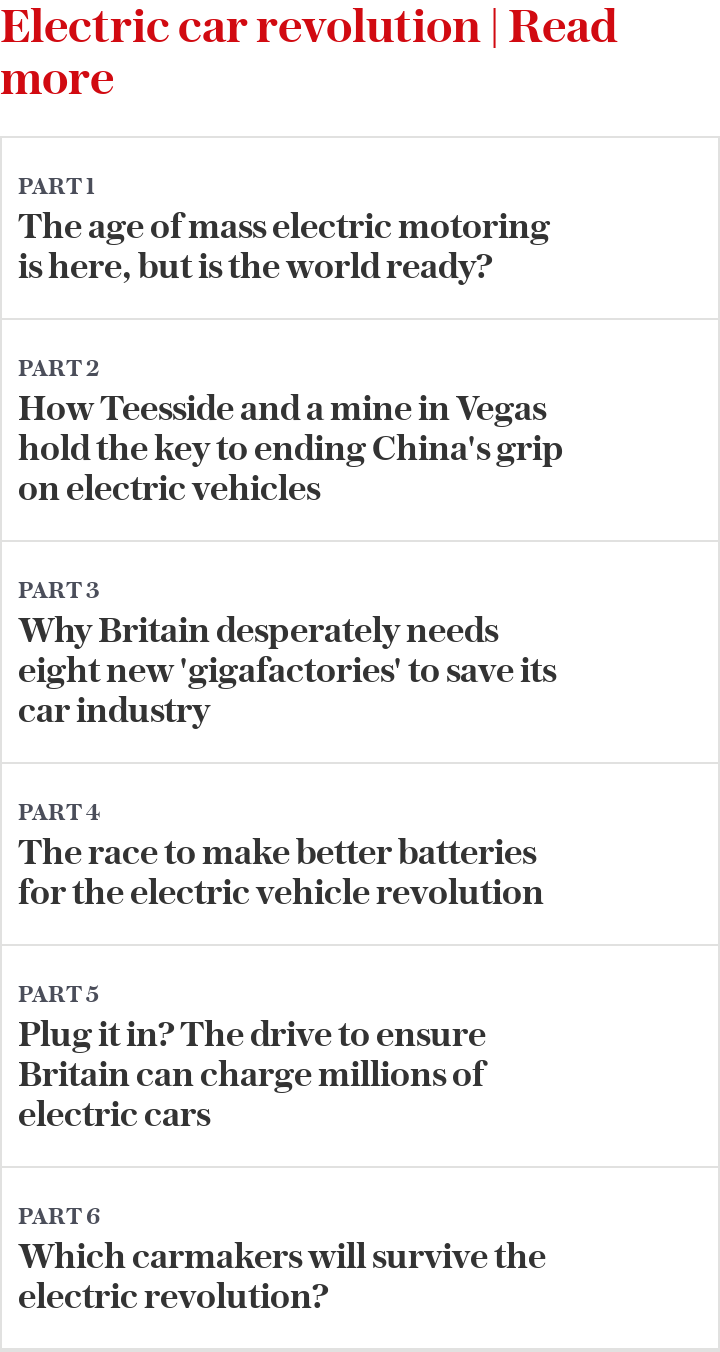Five-minute battery: Could charging your electric car soon be as quick as filling your tank?

Electric cars have gradually become as quick, as good-looking and almost as cheap as their petrol-powered counterparts. But there are still some convenience issues to overcome.
Along with making batteries smaller, lighter, safer and more compact, improving charging technology is one of the main barriers to mass electric car uptake - a key part of the UK's climate change plan.
While filling up at a petrol pump takes a matter of minutes, charging an electric car is currently a more time-consuming undertaking.
On standard home chargers, it can take eight hours or longer for a drained electric car battery to fill up.
Most commercial chargers are much faster than this, though. In the UK, the most commonly-found Rapid chargers, which operate at 50 kW, can charge a battery to 80 per cent full in between 20 minutes and an hour.
50kw is not widely considered to be particularly fast, and most UK chargers are even slower than this, so more powerful chargers will certainly help.
But even Tesla’s fastest superchargers, which operate at 250kw, require drivers to hang around for more than half an hour to get their empty battery to 100 per cent.
The main engineering challenge is not the power available from the charger, but the battery itself.
There's a trade-off between producing longer-range cars which can travel further on a single charge and batteries that charge more quickly.

This is because there's a limit to how quickly ions can flow through a battery, and in a longer-range battery they can get bunched up, damaging the battery's anode and causing short-circuiting.
But battery technology is improving all the time. So how long will it be before charging up your car is as fast as filling it up at the petrol pump?
Five-minute charging by 2025?
Doron Myersdorf, chief executive of Israeli company StoreDot, says his technology will be able to add 100 miles of range to an electric car within five minutes by 2025, using available charging infrastructure.
A faster charger could fill it up completely - but this technology isn't currently widely available.
Crucially, he says the “extreme-fast charging” (XFC) technology is now available to be manufactured using existing lithium-ion production facilities, reducing the extra work needed to make them widely available.
The battery is a “commercially-viable product that is scalable for mass production,” he said.
“I believe the number one barrier today is no longer the cost or convenience, or the availability of the batteries. It's the ease of charging.
"The ease of charging will evolve over time, but the real hockey stick is around 2025, when it will really take off, because then you will have a very similar experience to fuel."
The company says it has overcome a major barrier to fast charging - the tendency for lithium ions, stored in a graphite electrode, to get congested, short-circuiting the battery, which can cause fires and explosions.

The StoreDot batteries replace one graphite electrode with semiconductor nanoparticles based on germanium, allowing ions to pass through more easily.
Germanium is expensive, though, so the company is working on a prototype using the same design but replacing it with cheaper silicon.
Replacing the graphite with silicon or another alternative material is an approach being taken by many companies - but none have yet managed to nail the mass-manufacturing aspect. This is the breakthrough StoreDot says it has made.
Self-heating batteries
There are other possible ways around the problem. A second battery, invented by scientists at the US university Penn State, promises a range of 250 miles in 10 minutes of charging.
The scientists behind that project, which is at an earlier stage of development, said it could also tackle one of the other big barriers to electric car adoption - cost.
It uses a self-heating mechanism to warm the inside of the battery to 60C, improving efficiency by allowing the ions to move faster, decreasing charging time.
Professor Chao-Yang Wang, director of the Electrochemical Engine Center at Penn State, said: "This is how we are going to change the environment and not contribute to just the luxury cars. Let everyone afford electric vehicles."
When will one be on your driveway?
For drivers in the UK, the barrier to a five-minute car charge is likely to be availability, both of chargers and of suitable batteries.
There are currently just over 13,000 charging locations in the UK, and they are unevenly spread, concentrated in London and the South East.
These cutting-edge battery technologies are more expensive and logistically difficult to manufacture and might take a while to reach the mass-market, too - so it will most likely be longer than five years before there is one on your driveway.
Dr Myersdorf says higher production costs mean his batteries will initially be 10 to 20 per cent more expensive than standard ones, making them a high-end product, at least at first.
It will also likely take more than four years for cars containing the batteries to become widely available, because of the time needed to develop the cars and get them on the road.
Even then, a 50kw charger would only charge an XFC battery at five miles per minute - so the charging infrastructure needs to get up to speed before British consumers will begin to see real benefits.

 Yahoo News
Yahoo News 
